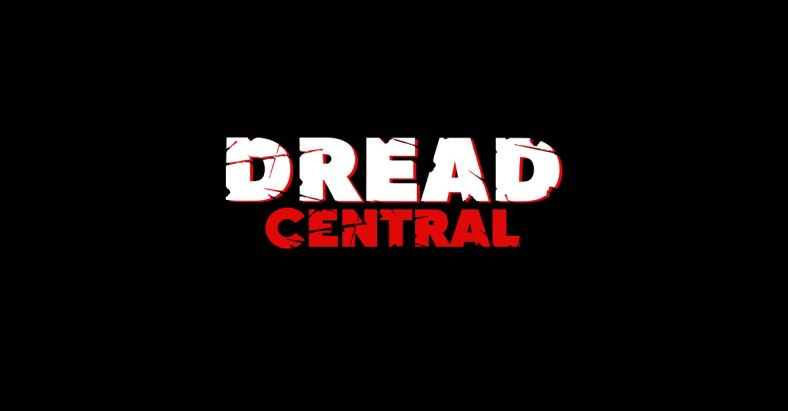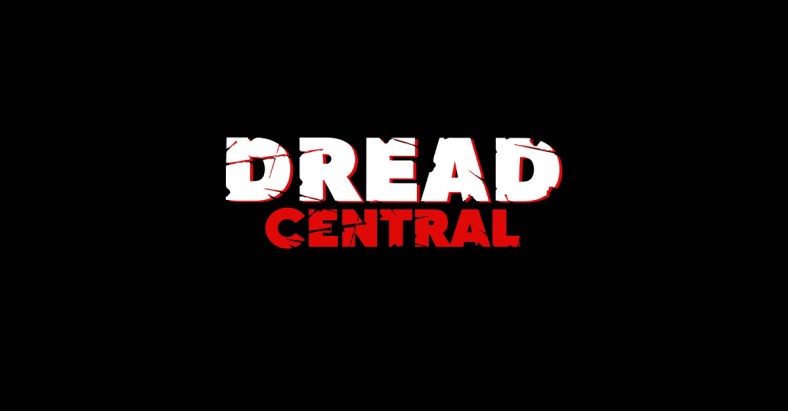Exclusive Interviews with the Twisted Minds Behind Manson Family Vacation – Jay Duplass and Linas Phillips

Sometimes I put my foot so far into my mouth during an interview, it’s a wonder I have room for any questions in there. One time, I asked an actor what it was like to wear a funny cheap wig in the movie, especially since it has nothing to do with his character, and he replied, “What? That was my real hair.” And I’ve done it again. While chatting with Linas Phillips, who plays a failed artist in the macabre new indie Manson Family Vacation (review), I mentioned the horrible paintings in the movie, and he said… “Wait. I did those!”
Read on for more laughs, eye-rolls, a few interesting tidbits about the movie, and insights as to what the players attribute the enduring fascination with Charles Manson and his band of crazed killers. The film is currently available on iTunes/VOD and will be available on Netflix beginning October 27th.
Dread Central: I know you both have siblings, and you play brothers in this film… so, did that life experience actually help you in working with your director, J. Davis, who said he’s an only child.
Linas Phillips: Well, the whole process was super collaborative from the script all the way through editing. J. made it clear that he wanted us to be as much a part of it as possible so we worked on the script physically with him for a while.
Jay Duplass: We were in the room and bounced ideas off each other.

DC: After hearing the title of the film, Manson Family Vacation, people are going to think it’s a killing spree movie… which it’s not. So, what were your thoughts when you first heard J. tell you about this idea?
LP: Well, it was more of just a concept initially. I knew it was going to be about these brothers.
DC: So, Charles Manson was not a part of it?
JD: Yeah, but it was just more of the concept. I thought of a documentary feel of them going to these different places [where the Family’s murders took place] and dealing with their stuff. But I think the relationship things got more and more fleshed out as he started writing because when he pitched the outline to us, it was exciting – but he had another sub-script going on and I think it was such a personal story.
LP: It was such a personal story and it was very easy to see; these two characters were sort of like two sides of J.; it just felt like this is a story that he needs to tell. He had so much potential energy, and that’s the kind of movie that you want to be in, so it’s easy to get a hold of, but then by managing the tone of it, it is essentially like a relationship movie. It’s also a thriller, a mystery, a comedy, a road trip movie; it has a lot of stuff going on, and so that’s where we really worked hard every day from writing all the way through editing, to find that balance.
DC: Linus, your character in this movie is, shall we say… a little off. Do you believe in nature or nurture, or how much is insanity actually inherited?
LP: Yeah, I think that’s proven that genes are carried over, like if you’re a depressed person, that’s sometimes in your family, bipolar and stuff like that, so I think that Manson’s probably paranoid schizophrenic or something of that. There is this chemical imbalance somewhere so yeah, I feel like that probably affected that character.
DC: I read the book Helter Skelter when I was far too young… I’m wondering for each of you, what you’re first memory or exposure was to Charles Manson’s story?
JD: I grew up in New Orleans, a very Catholic community. We just vilified Charles Manson completely, and in our eyes he’s a crazy person, and he’s evil incarnate. A pariah. And then when you grow up, you start to realize other things… some other things reveal, in this movie for instance, Charles Manson never killed anybody. That fact is surprising because we vilify him so much and he’s got multiple life sentences. People who see something else in Manson aren’t that crazy, [and they] sort of soften that possibility; a lot of things, like he was a prominent musician when he was young, he was close to making it as a musician and if that point in his life had gone into the direction of him becoming a musician, a lot of people would probably be still alive right now.
LP: He might have thrived as a famous musician, and everything might have been okay. And there’s a definite connection there and between that and Connie, my character, because he’s a struggling artist. There’s a slight parallel there because he could just go on and keep getting involved with these fringe people, and not have as good of a life as he could, which is what his brother is worried about. It’s so hard when you worry about a sibling or family member and you just want to help them so bad and just can’t really live their life with them. I’ve dealt with it, like just seeing my dad so worried and then when people are so worried about you, they can’t even listen because in the back of their mind they’re so worried. You can’t say how depressed you are because they’re just like, “Maybe you could do this, maybe you could do that” instead of just listening to you and helping you go through the emotional side of it. I think that’s a little bit of what’s going on with the brothers.
DC: And eventually that’s what happens here in the movie, Connie’s brother starts to come around a little bit and just be supportive without judgment. What were some of the changes in the relationship from one of the early drafts that we have now?
JD: The changes were enormous, but I would say that at first it was more of a lighter movie about guys visiting murder sites, and it became more a movie about two strange brothers who were trying to find a way to find some common ground; and the backdrop of that story became the Manson murder sites. A lot [was] switched and we added a lot to the story; it’s like we added secrets from the past that started to come out, and all this work that we’ve been doing for a couple of years really came to fruition when we shot it.
DC: It might seem like a silly thing, but those little touches actually do make an impact. One of the scenes that I really liked was when Nick and his wife put up this horrible painting by Connie over the mantle, just minutes before he shows up to visit…
LP: Hey, I painted that!
DC: Oops! So little things like that, do those come about from your own life…?
LP: I’m pretty sure that was J. Davis, that idea of a painting, and that Connie should be a painter. We had trouble figuring out the actual painting, and we ended up drawing that [at the last minute], and personally it was just a coincidence but I used to paint in college.
DC: Did you really go to some of the murder sites and fringe areas to be on the actual locations for the shoot?
JD: There are a couple locations that are true like the El Coyote, but the houses were too difficult to access. People are really touchy about that stuff, and so what we did was… we tried to find houses that were in similar neighborhoods and had a similar feel. We did explore trying to get some of the locations; we got some, but we couldn’t get them all.
From writer/director J. Davis, Manson Family Vacation stars Jay Duplass, Linas Phillips, Leonora Pitts, Tobin Bell, Adam Chernick, and Davie-Blue. It tells the story of two brothers: one who’s devoted to his family, the other who’s obsessed with the Manson Family.

Categorized:News

